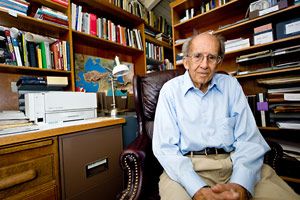

Holocaust survivor Roslyn Goldofsky explains her conflicting feelings about being Jewish after the Holocaust.
Jewish survivor Rita Kuhn discusses her interest in speaking with her Nazi cousin to learn a lot more about her experiences in the Holocaust. She says that her past did not exist to her until she openly discussed it in 1985, and she was finally able to share her experiences publicly in Berlin in 1988.
In Soviet-occupied Dubienka, Poland, located by the Bug River and on the border with Ukraine, Sam Szor remembers the military fortification by German armed forces in anticipation of the upcoming invasion of the Soviet Union. He describes the invasion, which took place in the dawn of the morning hours of June 22, 1941. It was his birthday. He recalls the retreat of the Soviet armed forces and the resulting fear felt by the Jewish population with the German occupation of Dubienka.
Jewish survivor Fred Anstcherl talks about being boycotted by the Swiss Jews while living as refugees in Switzerland. The indigenous Jewish community believed the Austrian and German Jewish refugees would undermine their existence, and they did not want them in their country. The Quakers and other Christian groups were very kind to the refugees by contrast.
Jewish survivor Ruth Bernard talks about being a Jewish refugee in Stotfold, England and the difficult physical conditions they endured to obtain basic things such as water, a kitchen, and school. She remembers the farmer that she stayed with couldn’t believe that she was Jewish because she looked so normal.
Jewish survivor Ida Chait talks about her experience as a Jewish refugee in Komi, Russia and having to relocate to Samarkand in cattle cars on a journey that took over 30 days. She and her family had to live on the streets of Samarkand for 6 weeks, until her father was able to get a job as a tailor.